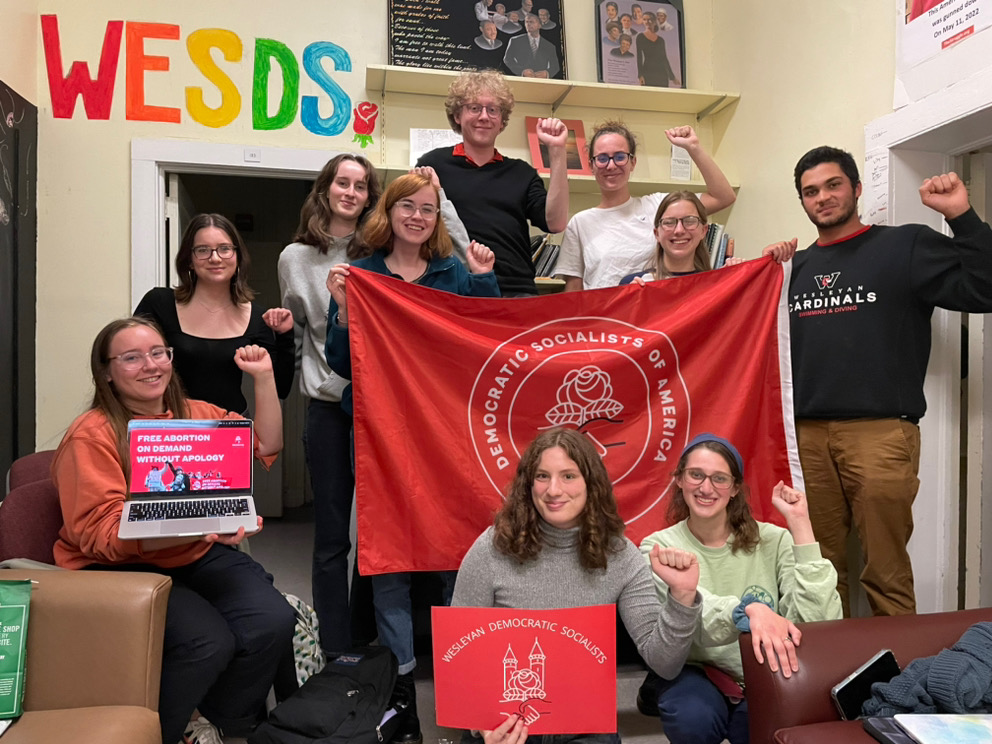
The University confirmed on Friday, May 5 that it would cover the cost of abortions after insurance for all students, regardless of insurance plan, starting in the Fall 2023 semester. This decision follows student activism and a petition that garnered over 700 student signatures and was distributed by Wesleyan Democratic Socialists (WesDS), the campus chapter of the Young Democratic Socialists of America, in response to recent efforts to expand reproductive rights at Barnard College. WesDS announced the news in a press release that same day.
In addition to medical fees, the University will cover related expenses, such as transportation to and from the abortion clinic and any necessary postoperative pain-relief medication. Additionally, the University will offer the emergency contraceptives Plan B and Ella to students free of cost.
“This victory comes in the wake of landmark efforts by Barnard College students to secure abortion pills on campus as well as a broader movement for reproductive justice nationwide,” the statement reads. “Wesleyan now plays a pioneering role in reproductive healthcare among private liberal arts colleges by committing to cover the entire cost of abortion after insurance for all students.”
Barnard College announced its commitment to offer emergency contraception on campus Thursday, Oct. 6, 2022, following a summer of tumult surrounding reproductive rights. The Supreme Court overturned Roe v. Wade with the Dobbs v. Jackson decision on Friday, June 24, 2022, striking down the legal precedent that deemed an individual’s right to an abortion protected under the Due Process Clause of the 14th Amendment to the U.S. Constitution. As a result, abortion laws were relegated to state legislatures. In Connecticut, the right to abortion is codified in state law; a bill that Governor Ned Lamont signed expanding the protections to include those seeking an abortion out of state went into effect on Friday, July 1, 2022. Despite the right of persons in Connecticut to acquire an abortion, there are other obstacles that the University’s commitment will help to ease.
While the University student insurance plan covers the cost of the abortion procedure, there are other costs that are not covered, including transportation or postoperative medicinal pain relief. Starting in the fall, the University will cover all costs brought on by the procedure and will allow students with private insurance and University insurance alike to receive the same care. To Medical Director Dr. Thomas McLarney, this expansion is a continuation of the University’s commitment to providing services to students in need.
“[The] ability for consideration of financial support of those in need have not changed from what we have been doing for years,” McLarney wrote in an email to The Argus.
WesDS Senior Steering Committee member Anna Tjeltveit ’23 discussed the efforts of the organization over the past two semesters to achieve this decision.
“In the fall, we spent a long time researching and building connections with the [Davison] Health Center, WesWell, and other campus organizations in order to determine what proposal would make the most sense at Wesleyan,” Tjeltveit wrote in a message to The Argus.
In the spring semester, WesDS called on the student body to rally behind their demands.
“Our petition, which we created in the spring, received overwhelming support from almost all students we spoke to, and we were able to gather over 700 signatures, which is significant for a campus this size,” Tjeltveit wrote.
While WesDS spearheaded this effort, the decision occurred thanks to the help of the student body and other student organizations.
“The campaign was also supported by Wesleyan Reproductive Advocacy and Legislation, Wesleyan Doula Project, Adolescent Sexual Health and Awareness, the Wesleyan Student Assembly, and its associated Student Health Committee,” the press release reads.
Petition in hand, WesDS approached the University administration with a list of demands, to which the University responded generously.
“The administration’s quick, positive response was a pleasant surprise for [WesDS], and it is a strong indication of the energy and support for reproductive justice on [this] campus,” Tjeltveit wrote.
The response of the administration and student support speak to an environment in which conversations about reproductive health are not only present but encouraged.
“The Wesleyan administration’s decision to cover the cost of abortion and emergency contraception on campus is a powerful sign of our community’s commitment to protecting these rights,” Tjeltveit wrote. “Getting an abortion in this political climate is not an easy process, and the least that our community can do is support anyone who needs to make a choice and ensure that financial barriers will not make people’s choices any harder than they need to be.”
Wesleyan will become one of very few universities in the country to comprehensively cover this integral facet of reproductive health care. Even in states like Connecticut with protections for abortions, the decision of universities to ease the burden of students seeking abortions or emergency contraceptives not only affirms students’ right to bodily autonomy, but also acknowledges and eases the difficulties a person, and more specifically a student, might face in the process of seeking these services, even in a state with abortion protections.
“Students cannot learn at their best if they are facing outsized medical costs,” Tjeltveit wrote. “Students cannot learn at their best if they are forced to carry an unwanted pregnancy to term because logistics, finances, and social stigma prevent them from accessing abortion services. Roe is only one issue which highlights the fact that supporting students must mean acknowledging students’ full needs, including access to affordable healthcare. This includes not only reproductive care, but also support for students with chronic illness and gender affirming care.”
Amalie Little can be reached at alittle@wesleyan.edu.



Leave a Reply